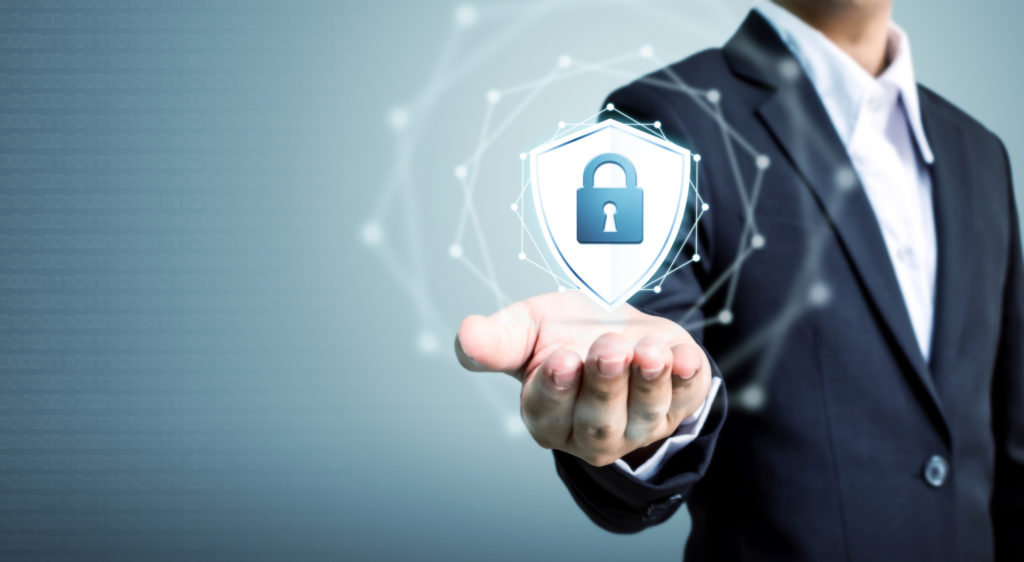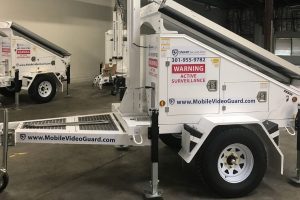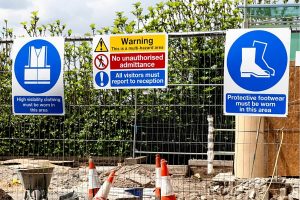According to the FBI, there were 412,743 burglaries from nonresidential properties in 2016. That’s an increase of 2.6% from 2015.
Business security is paramount to your bottom line and your business continuity. A simple burglary can set you back months and ruin your investments. A data breach could be particularly costly and ruin your reputation.
Thankfully, more and more businesses are reaching their security goals with the help of state-of-the-art equipment and outsourced security experts. With a combination of affordable technology, better planning, and improved best practices, you can keep your business safe.
Keep reading to learn 9 of the best business security tips.
1. Create a Documented Security Plan
Commercial property security should revolve around a documented plan. Before you make a plan, there are steps you should take to analyze and update your security.
If you don’t have a dedicated security staff at your company, you may wish to create a security plan with the help of third-party experts. The important part is documentation. Without a documented plan, it’s much more difficult to enforce security policies.
Here are the steps you should take:
Review Your Insurance
Commercial property insurance can protect your property from several threats. These include fire, burst pipes, storms, theft, and even vandalism. However, some plans may differ from others.
If you haven’t reviewed your insurance for a while, incorporate an insurance review into your security plan. You should be insured for all plausible risks, given the nature of your business.
For example, businesses in certain areas of the country may need types of insurance that others don’t due to weather concerns.
Do a Security Audit
A security audit is a systematic assessment of your current security policies. Your policies should dictate employee security protocols, like entering and leaving a property, as well as your best practices for managing your security infrastructure.
Identify Security Risks
During an audit, you’ll also have the opportunity to identify risks and vulnerabilities. Analyze every entry and touchpoint to determine where your vulnerabilities are.
You’ll also have an opportunity to identify dated technology. Many businesses are still reliant upon aging security systems, like old security cameras and access control systems.
Create a Master Copy of Your Security Plan
Once you’ve identified your risks and done an audit, you can document a security plan. This plan can take several forms depending on your business. For example, if you’re trying to keep a construction site secure, you may wish to create a security map or diagram of the site.
Test Your Security Equipment
And finally, you should test your plan and train your employees. Any security technology you put in place should be tested to ensure it meets standards. Employees should be informed of all updated security protocols.
2. Improve Indoor and Outdoor Lighting
When it comes to security for businesses, sometimes small improvements can make a big difference. Lighting isn’t just a deterrent for theft and burglary. It’s also an important investment in safety.
Proper visibility is essential in parking lots, walkways, at doors, and on job sites. Poor visibility can lead to accidents that cause injuries. It also helps police or security personnel see more effectively into a property or onto a job site.
If you’re concerned about power costs, consider installing motion sensor technology to your outdoor lighting. You can even invest in bright and efficient LED bulbs.
3. Put Up Signage
It may seem like a simple solution, but proper signage can go a long way in increasing security. Proper signage is also an important factor for workplace safety and the safety of the public.
For example, proper signage can prevent pedestrians from unknowingly walking into a dangerous construction site. It can also inform contractors of where the proper access point is or when safety equipment needs to be put on.
OSHA may require you to put up certain types of signage, depending on your business. At construction sites, it is the responsibility of the employer to put up regulated safety signage, for example. Signage is meant to inform the public as well as your employees.
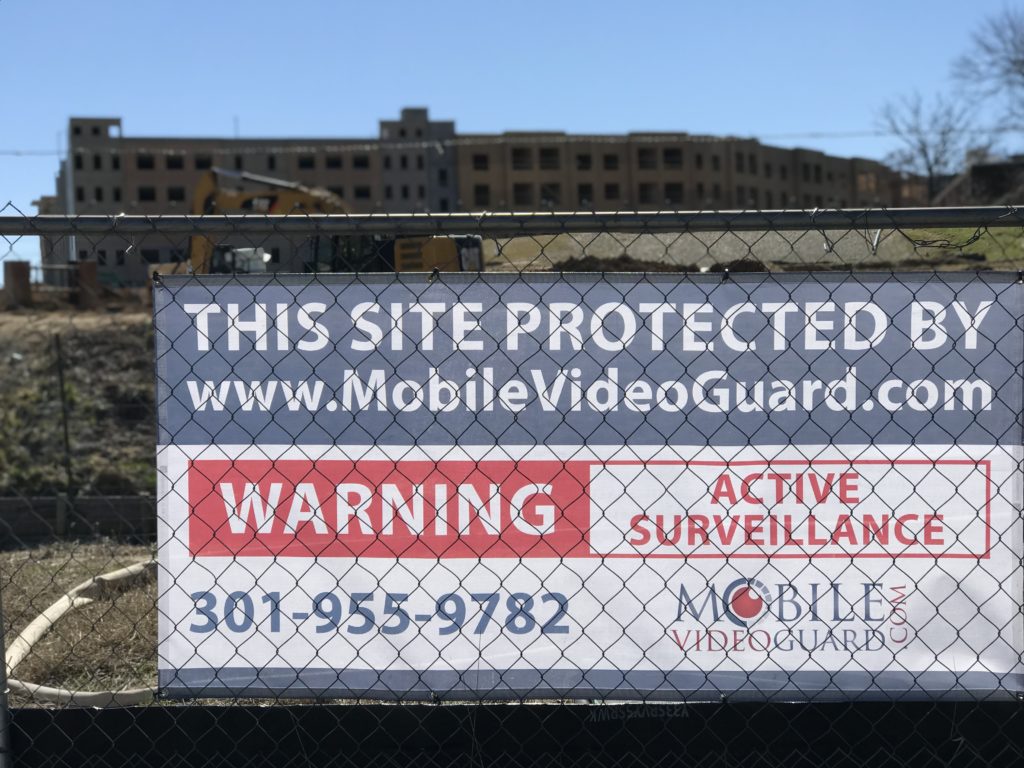
Signage can also serve as a deterrent to criminal activity. If you have a surveillance system in place, putting up signage saying so can make thieves think twice before stealing equipment.
4. Implement Access Controls
Whether you’re operating a job site or a corporate building, access controls are fundamental to site security. The objective of access control is to minimize unauthorized access to a specific location. Many insurance policies may require you to use access control at your site.
Access control systems can be as basic or as technologically advanced as you need them to be. For high-security areas, you can install identity card scanning systems and magnetic door locks. Because of advancements in biometric technology, even retinal and fingerprint scanners are available to many businesses and organizations.
But often, an access policy, signage, and a ring of fencing are all you need to manage access to a site.
5. Install Modern and Mobile Surveillance
Cameras are now ubiquitous in our society. They can be found on top of traffic lights, in schools, and even outside of homes. Police departments are rapidly increasing their use of security cameras in urban areas.
Private surveillance is one of the most tried and true methods for maintaining building security. Whether it’s a convenience store or a corporate office, not only do cameras help to deter crime, but they also help to identify suspects when a crime does occur.
In the past, most surveillance cameras were fixed to buildings or embedded poles. Today, job sites and mobile businesses can be secured with a mobile camera. These are perfect for temporary or remote work sites.
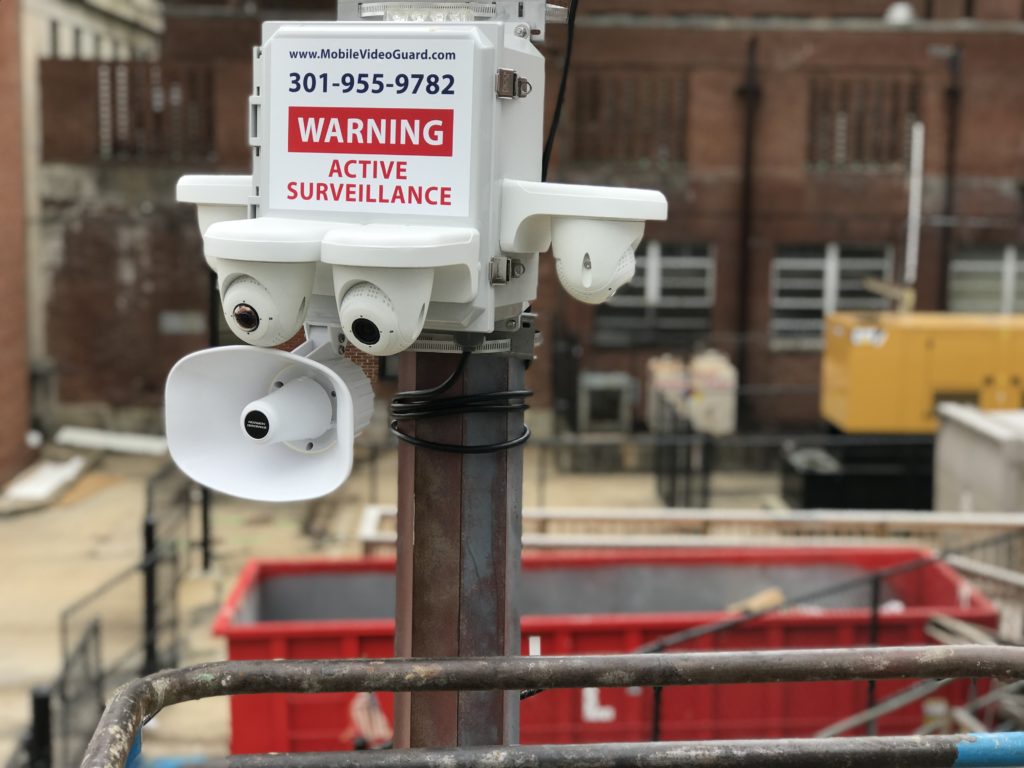
Surveillance should be just one part of your security suite. According to the University of Tennessee Institute for Public Service, “CCTV is most effective when combined with other crime reducing/deterring methods.”
6. Enable License Plate Detection
In combination with state-of-the-art surveillance cameras, license plate detection systems add another layer of protection to your security mix. License plate lenses have special filters that can block headlight glare, thus capturing both front and rear plates of any car that passes in the vicinity.
Although this feature isn’t always necessary, it can be a great help during an investigation. Burglars, thieves, and vandals who escape in vehicles can be more easily identified after the fact and then held accountable for their actions.
7. Reinforce Data Security
Small businesses and businesses detached from the tech sphere often make the mistake of assuming they won’t be the target of a cyber-attack. In truth, all businesses are at risk. The odds are as high as 1 and 4 that your business will experience a data breach.
You may be holding transactional data, business data, or even consumer data, depending on the nature of your business. It’s your responsibility to keep that data secure.
Your first step should be to educate your employees. Malware attacks often occur when an unsuspecting employee clicks on a malicious link in a bogus email. Enforcing password and authentication protocols can also go along way to keep your data safe.
You should also train your employees on remote access security. As the internet of things (IoT) continues to touch every industry, even construction, more and more equipment will be connected to your network.
And finally, you should take typical data security steps to protect your data. These include:
- Next-gen firewalls
- Antivirus protection
- Regularly updated software
- Mobile device security protocols
- Secure data backups
- Network monitoring
- Crisis and recovery planning
As risks from cyber threats continue to escalate across every industry, no company can neglect to incorporate data security into their business security strategy.
8. Hire Security Guards
Hiring security guards isn’t always cost-effective for most businesses. But it may be an important security step if your business handles high-value merchandise, large sums of cash, or highly sensitive information. Security guards are also an essential resource when protecting VIPs.
Unlike automated security systems, security guards can make decisions in the moment. They are a much greater deterrent than cameras, signage, or fencing alone. In many cases, they can prevent crimes from occurring and mitigate the damages of a crime even if one does occur.
Security guards are an expensive resource. But whether they are armed or unarmed, they can powerfully reduce the risk of crimes or other incidents.
9. Work with an Outsourced Security Team
Most businesses can’t afford to keep security personnel on staff. Many more can’t afford private security guards.
If you need additional help with your security needs, consider hiring an outsourced security staff. They can help you do an audit of your current security protocols so you can develop a plan of action.
Often, it’s better to get an objective, expert opinion of your site security before making any investments.
Modernize Your Business Security
American cities spend an estimated $12 billion on graffiti cleanup each year. Businesses, vacant houses, and construction sites are three of the most common targets for graffiti.
But graffiti isn’t the only security risk facing your business. Theft, burglary, and data theft can all have a dramatic impact on your bottom line. In the worst cases, a security incident can even cause your business irreparable harm.
After drafting a security plan, focus on securing your business premises. Whether you have a brick and mortar store or temporary job sites throughout your area, surveillance systems should be at the top of your list of security investments.
If you’d like to explore additional business security solutions, SMART Security Pros can help. SMART Security Pros keeps a staff of surveillance agents with law enforcement experience and arms them with the latest technology to secure your business.
Contact us today tofind out how we can protect the site of your business. We can provide services throughout the U.S.

